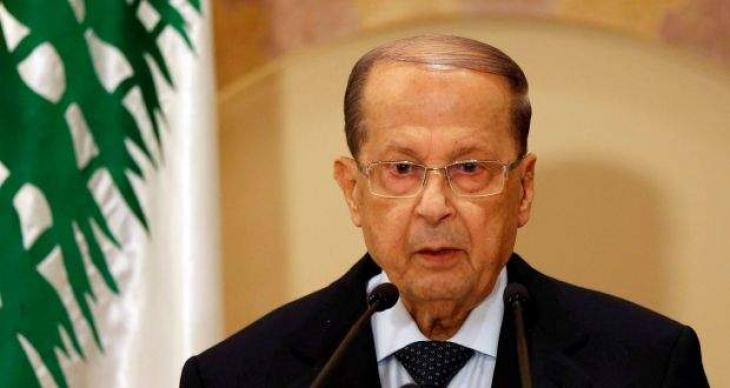


by france 24 — Clashes between police and protesters in Lebanon angered by delays in forming a government wounded more than 160 people on both sides Saturday as anti-establishment demonstrations enter a fourth month. The sound of ambulance sirens rang out across Beirut as the Red Cross reported 65 wounded had been taken to hospital and 100 more were treated on site. On Saturday evening, fire tore through protest tents in an iconic square in central Beirut. It was not immediately clear what caused the blaze. According to the spokesman, there were injuries on both sides. The protest movement rocking Lebanon since October 17 revived this week as a deepening economic crisis increases pressure to form a new government. No progress appears to have been made towards finalising the cabinet, which protesters demand be comprised of independent experts and exclude all established political parties. ‘We won’t pay the price’
Earlier, marches converged on the city centre from across Beirut, with demonstrators chanting “We won’t pay the price”. But near parliament, dozens of protesters threw rocks and large plant pots at police guarding the institution. Others charged police blockades with traffic signs and metal barriers. Security forces behind the barricades responded with water cannon and tear gas to disperse the crowds. Lebanon’s Interior Minister Raya el-Hassan said it was unacceptable for protesters to attack security forces. “I always asserted the right to protest, but for the protests to turn into a blatant assault on the security forces, on public and private property, is condemned and not acceptable at all,” she said in a tweet. The Internal Security Forces also took to the social media: “A direct and violent confrontation is taking place with anti-riot police at one of the entrances to parliament”, they tweeted. “We ask peaceful protesters to keep away from the site of the rioting for their safety.” They published photos of several wounded policemen and a video showing pillars stripped of their tiles, reportedly to be thrown at security forces.
An AFP photographer saw young men uproot parking metres. He also saw around 10 people faint from tear gas inhalation. ‘Popular anger is the solution’ A 23-year-old woman named Maya said she was protesting because politicians seemed to be ignoring demands for an overhaul of the old political class. “I’m here because after more than 90 days in the streets, they’re still squabbling over their shares in government… It’s as if they didn’t see our movement,” she told AFP. “Popular anger is the solution,” she said.
Forming a cabinet is an often convoluted process in Lebanon, where a complex system seeks to maintain balance between the country’s many political parties and religious confessions. But protesters say they want to scrap the old system, and demand a new government of impartial technocrats to address mounting economic woes, including a severe liquidity crisis. This week public anger has been directed at banks, with branches in the capital’s Hamra district vandalised following widely unpopular limits on withdrawals and transfers. Dozens were detained for several nights after clashes on Tuesday and Wednesday, before being released. Human rights groups denounced the arrests and what they described as unacceptable violence against largely peaceful protesters. The last government stepped down under pressure from the street on October 29, but has remained in a caretaker capacity until a new cabinet is formed. Political factions that agreed on December 19 to appoint former education minister and Professor Hassan Diab as the new premier are now disagreeing over proposed ministers. The World Bank has warned that the poverty rate in Lebanon could rise from a third to half of the population if the political crisis is not solved quickly. (FRANCE 24 with AFP and REUTERS)

Lebanese President Calls On Army, Police To Restore Order In Beirut Amid Protest – Reports
BEIRUT (Sputnik – 18th January, 2020) Lebanese President Michel Aoun on Satuday demanded that the army commander and the head of the internal security forces stabilize the situation in the downtown of Beirut and ensure the safety of peaceful demonstrators amid violent clashes with the police, the Lebanese LBCI broadcaster reported. According to the media outlet, Aoun held a series of telephone conversations with the country’s defense and interior ministers as well as military commanders, urging them to restore order in the city. Protesters from across Lebanon gathered in Beirut earlier in the day to attend the “Saturday of outrage” rally near the parliament building against economic mismanagement and weakening national currency. Demonstrations turned into violent clashes with the police when protesters started throwing stones and metal rods at officers and eventually attempted to storm the fences of the parliament building. Police used tear gas and water cannons in response.




